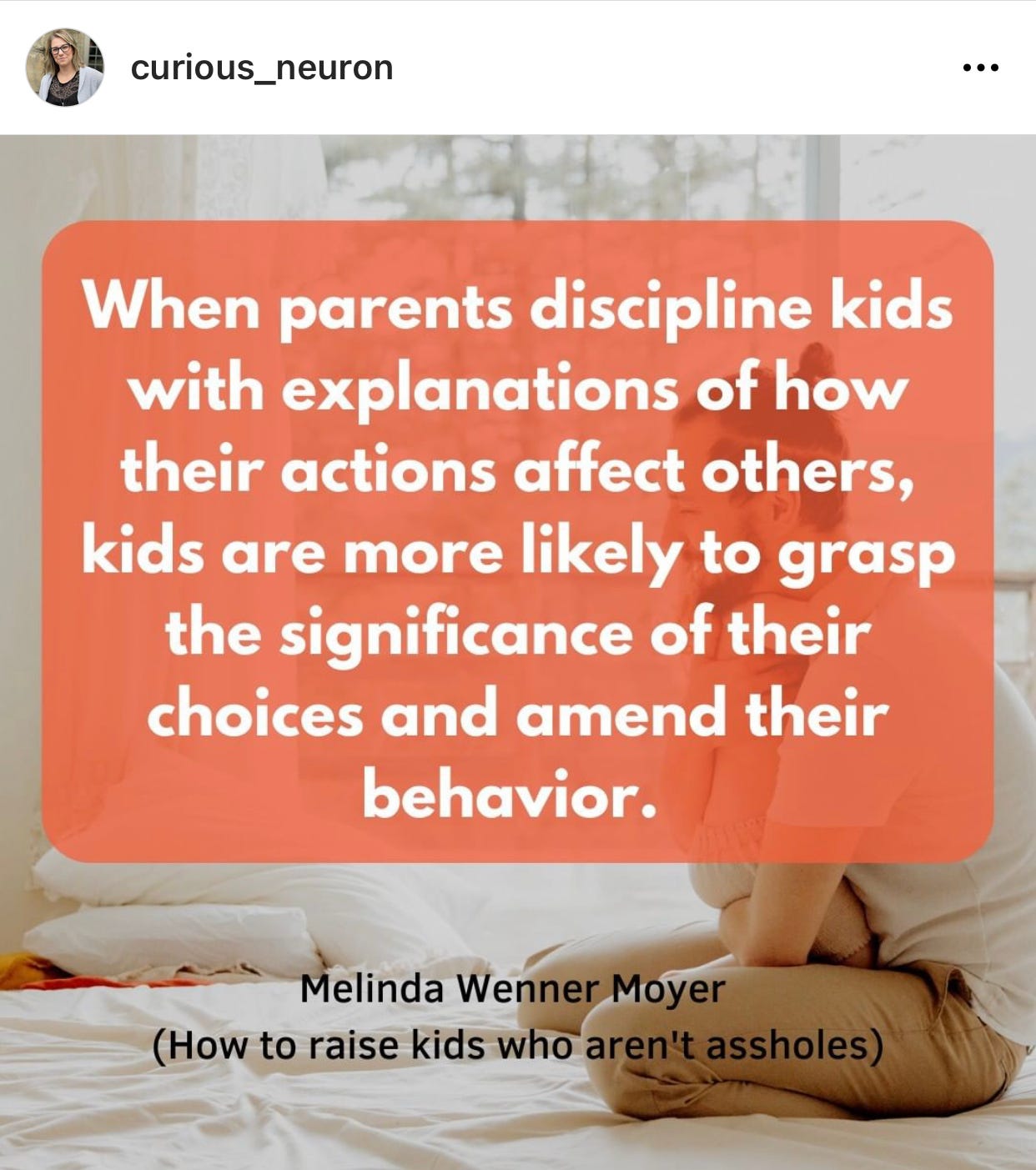The Complex Art of Teaching Empathy
How do we teach kids that their choices affect others without burdening them and inciting shame?
One thing I love about being a parenting writer is that I know I will never run out of ideas. As long as our kids challenge us (and I’m sorry to say, they will never stop), we will continue to be like DEAR GOD TELL ME HOW TO HANDLE THIS. You ask so many good questions in my threads on and on social media, and I really appreciate getting them because then I know where to focus my energy and research.
Today I’m going to address a question I got on Instagram last week after neuroscientist Curious Neuron shared this post about my book:
Several parents then raised an excellent question in the comments, which was along the lines of this:
How can we teach our kids empathy, compassion, and responsibility for hurtful actions toward others while also not making them feel responsible for how everyone feels around them?
I really believe it’s important for children to learn that their words and actions can have consequences for others — including by hurting their feelings. Some kids who bully do so in part because they lack a skill known as “theory of mind,” which is essentially the ability to put themselves in other people’s shoes and recognize that what they’re saying or doing could be hurtful. We also know from research that parents’ use of inductive discipline — teaching kids to consider how their choices affect others, and encouraging them to think about impact as well as intention — is linked with all sorts of good outcomes, including greater compassion and empathy.
But, of course, we don’t want our children to think that they are responsible for others’ emotional well-being, and we don’t want them to feel ashamed of themselves when they make choices that negatively affect others. So much “bad” kid behavior is not intentional — it’s often a reflection of lack of skills, including impulse control. We don’t want our children to feel that their not-always-ideal actions reflect who they are, deep down, as human beings or that it’s their job to keep us or others happy.
How do we achieve the first goal without inadvertently doing the second? I reached out to two of my favorite parenting thinkers to get their thoughts: child development specialist Claire Lerner, author of the exceptional book Why Is My Child in Charge? and psychologist Rebecca Schrag Hershberg, who wrote the wonderful book The Tantrum Survival Guide. Here’s what I learned.




